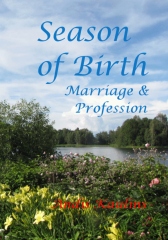"The Old Norse, Old Frisian and Old English þing with the meaning "assembly" is identical in origin to the English word thing, German Ding, Dutch ding, and modern Scandinavian ting when meaning "object". They are derived from Common Germanic *þengan meaning "appointed time", and some suggest an origin in Proto-Indo-European *ten-, "stretch", as in a "stretch of time for an assembly". The evolution of the word thing from "assembly" to "object" is paralleled in the evolution of the Latin causa ("judicial lawsuit") to modern French chose, Spanish/Italian cosa and Portuguese coisa (all meaning "object" or "thing").But of course, that mainstream linguistic etymology of thing (assembly) and thing (object) is nonsense.
In English the term is attested from 685 to 686 in the older meaning "assembly", later it referred to a being, entity or matter (sometime before 899), and then also an act, deed, or event (from about 1000). The meaning of personal possessions, commonly in plural (possibly influenced by Old Icelandic things meaning objects, articles, or valuables), first appears recorded in Middle English in around 1300."
As the Latvian language, taken here as representative of early Indo-European, clearly shows, the older terms in Indo-European were ca. as follows
Latvian lie-tiņa "thing" (diminutive), lieta "thing (used)", lieto- "use, use (that)".
This has nothing to do with Latvian diena "day", and the alleged relation of thing (assembly) to IE *ten "stretch" is a linguistic "stretch" with no basis in fact or fiction. The concept of Latvian diena "day" is related to e.g. Serbo-Croation dan "day" and Lithuanian dangus and Old Prussian dangs "heaven, cover", whence also the ancient Egyptian Dendera or old Polynesian tatanga "roof of heaven".
thing in the meaning of "assembly" rather than "object" is related to the English word think and that is another root entirely, being related to German denken i.e. "thinken", and related to Latvian deņi viz. deniņi "temples (of the head), temporal bone" - where thought was thought to reside and why the Latvian folk-songs are called Dainas. Text composition or recitation was "verbal thinking" i.e. dainot (to think verbally, compose or recite verses) whereas "calculation thinking" in Latvian was gudrot. Latvian gudr- "wise, clever" is related by etymology to English "good" which the mainstream linguists see as related to the alleged proto-Indo-European (PIE) base *ghedh- "to unite, be associated, suitable". A related English term is code. The base concept is actually found in Latvian kod-ols "kernel, core (of a calculated matter), bite (of the whole) i.e. the essence".
The "assembly" thing was thus a place for "thinking" verbally, as opposed to being a place for thinking via calculation.
The word for "object" thing derived from a broader term for "something used".
What the mainstream linguists have derived as etymologies for these terms is beyond Alice in Wonderland.

No comments:
Post a Comment